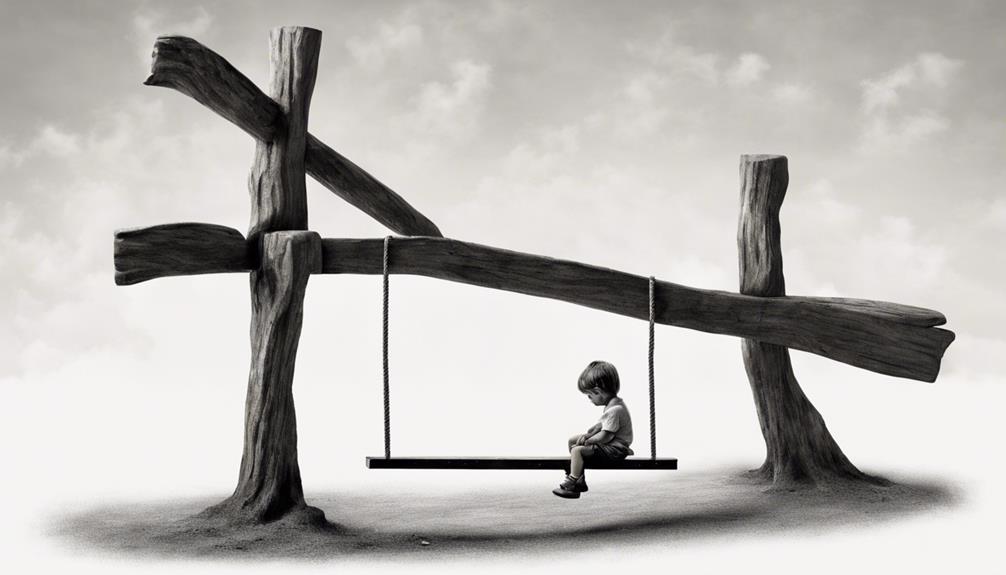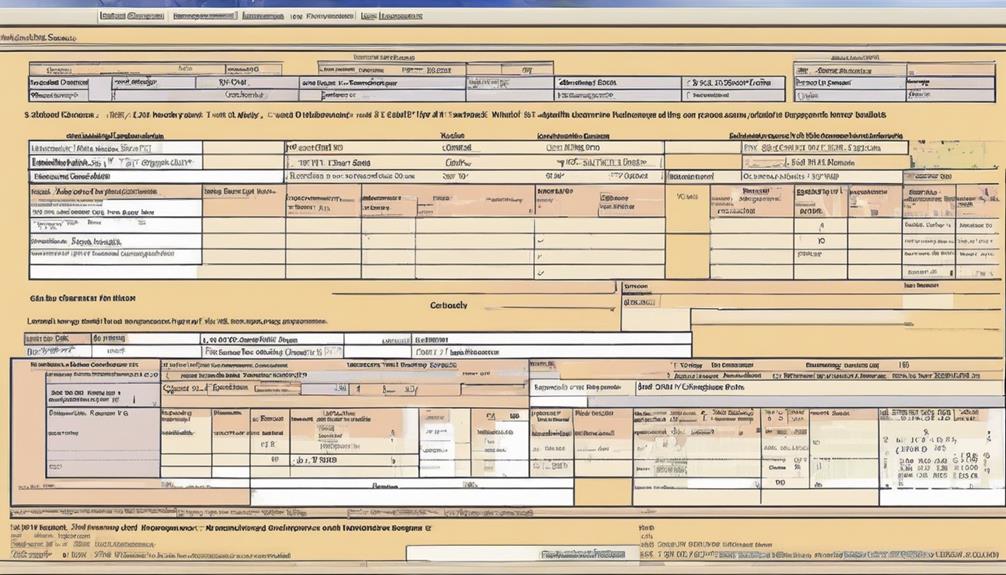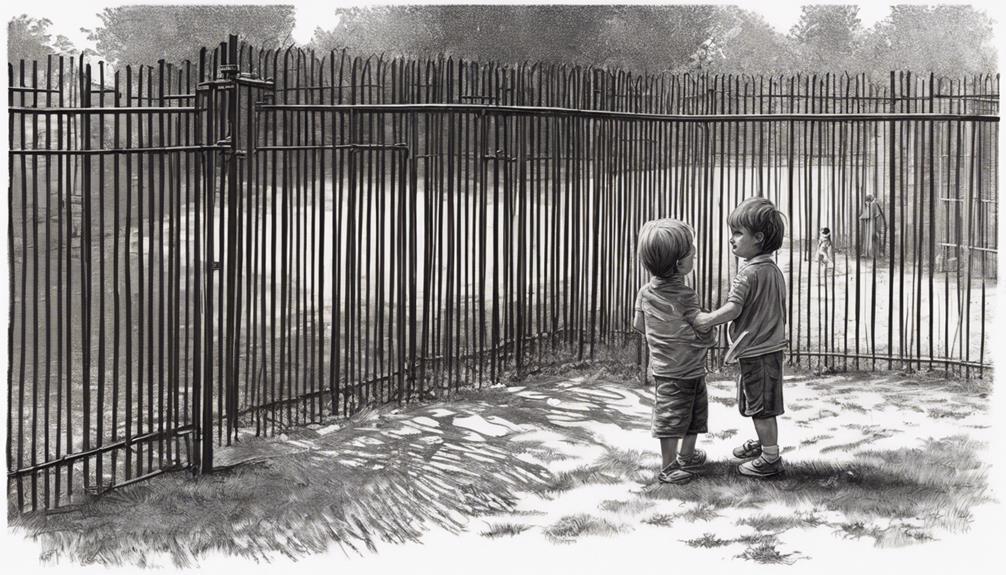Have you ever thought about the immediate impact of divorce on children?
The initial aftermath of a divorce can be challenging for children, and understanding how to navigate these effects is crucial.
Let's explore practical strategies and insights that can help children cope and adjust effectively during this transitional period.
Key Takeaways
- Maintain consistent routines and provide emotional support to help children feel secure.
- Offer simple explanations and age-appropriate communication to aid children in processing emotions.
- Encourage open communication and provide reassurance to strengthen the parent-child bond.
- Address behavioral changes with patience, affection, and stability to help children navigate post-divorce challenges.
Impact of Divorce on Babies
Understanding the profound impact of divorce on babies is crucial for cultivating their emotional resilience and well-being during this challenging time. Babies, particularly those in the first 18 months of life, are highly sensitive to disruptions in their attachment patterns. The high levels of parental conflict often present during divorce can lead to increased stress and irritability in infants, affecting their emotional development. Signs of distress like heightened crying, changes in sleep patterns, and feeding difficulties may manifest in babies post-divorce, highlighting the need for careful attention to their well-being.
Maintaining secure attachment with caregivers is paramount for babies' emotional stability amidst the turmoil of divorce. Consistent caregiving routines and early parental support play a vital role in mitigating the negative effects of divorce on babies. By providing a stable and nurturing environment, caregivers can help infants navigate this challenging period with greater emotional resilience and well-being.
Coping Strategies for Toddlers
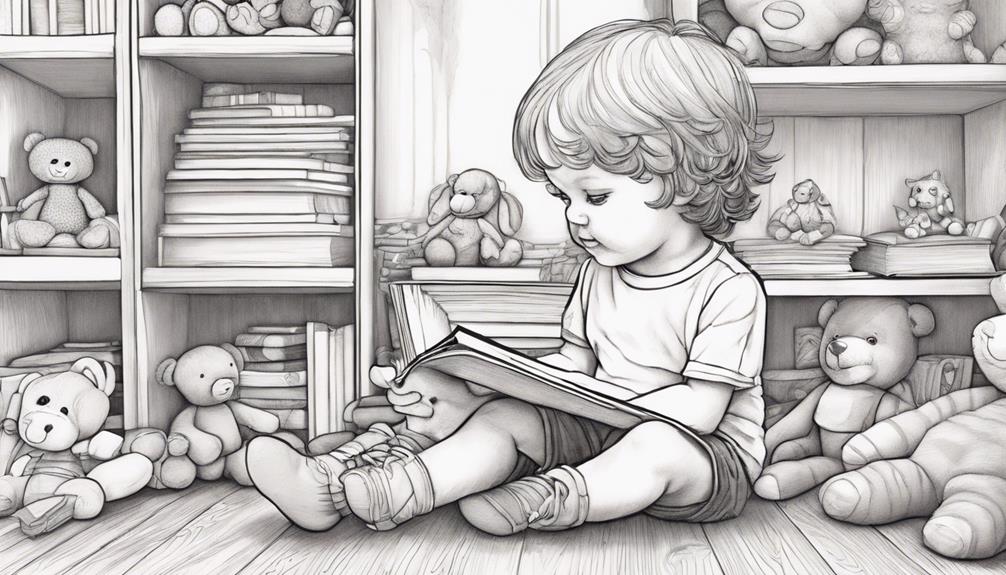
Navigating the challenges of divorce, toddlers aged 18 months to 3 years old may exhibit increased clinginess, regression in behaviors, and heightened separation anxiety. During this tumultuous time, it's crucial to provide support and stability for these young ones. Here are three essential coping strategies for toddlers going through divorce:
- Maintaining Consistent Routines: Keeping daily schedules predictable can offer a sense of security amid the changes happening in their family life.
- Providing Extra Reassurance and Physical Affection: Offering hugs, cuddles, and soothing words can help toddlers feel loved and secure during this uncertain period.
- Offering Simple Explanations and Emotional Expression: Encouraging toddlers to express their feelings through play, art, or simple words can assist them in processing their emotions and understanding the changes happening around them.
Supporting Preschoolers Through Divorce
Supporting preschoolers through divorce involves recognizing their unique emotional needs and providing them with consistent reassurance and understanding as they navigate the challenges of this significant life transition.
Preschoolers, aged 3 to 6, may exhibit regressive behaviors such as bedwetting or tantrums in response to the stress of divorce. They often struggle to comprehend the concept of divorce, feeling confused and sometimes blaming themselves for their parents' separation.
To help preschoolers cope, it's essential to offer clear explanations, age-appropriate communication, and emotional support. Providing consistent routines and reassurance of love can help them feel secure during this tumultuous time.
Preschoolers benefit greatly from opportunities to express their feelings through play or drawing, as well as from parental patience, consistency, and affection. By offering understanding and stability, parents can assist their preschoolers in navigating the emotional challenges of divorce effectively.
Managing School-Age Children's Reactions
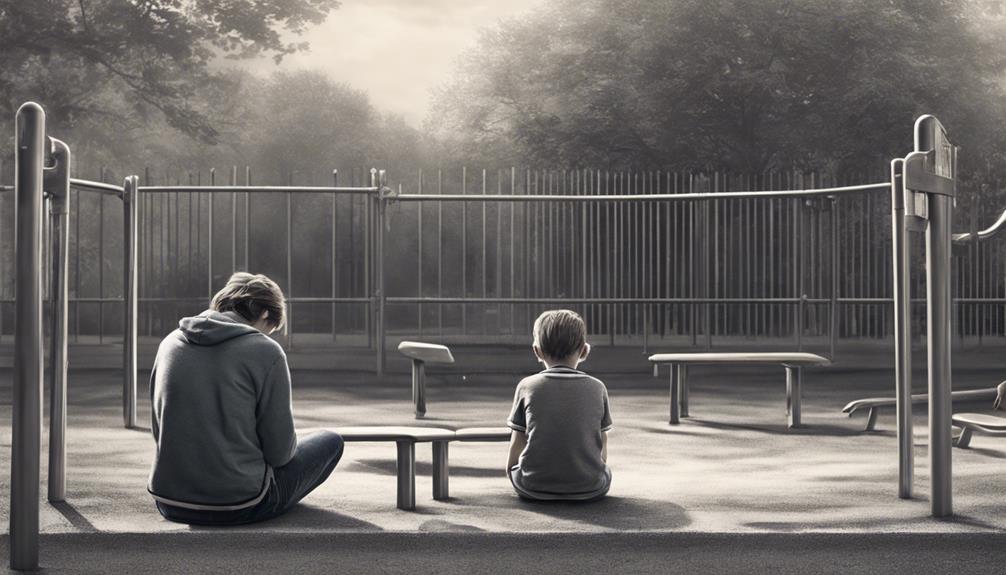
School-age children experiencing their parents' divorce may demonstrate behavioral changes such as acting out, aggression, or withdrawal as they grapple with the emotional impact of this significant life event. Witnessing their family unit change can lead to a rollercoaster of emotions and behaviors that might be difficult for them to process.
To help manage school-age children's reactions effectively, consider the following:
- Offer Emotional Support: Validate their feelings of guilt and confusion, and reassure them that it's okay to feel this way. Providing a safe space for them to express their emotions can make a world of difference.
- Maintain Consistent Routines: Establishing predictability in their daily lives can offer a sense of stability amidst the chaos of divorce. Consistent routines can help them feel secure and grounded during this tumultuous time.
- Encourage Open Communication: Foster an environment where they feel comfortable discussing their concerns and fears. Engage in age-appropriate discussions about the divorce, listen actively, and provide parental reassurance of your love and support. Open communication can strengthen your bond and help them navigate their emotions more effectively.
Immediate Effects on Children
As children grapple with the immediate aftermath of their parents' divorce, they often face a whirlwind of emotional turmoil and uncertainty, navigating through shock, confusion, and disrupted routines. It's not uncommon for children to exhibit behavioral changes like withdrawal, anger, and resentment during this time.
The effects of divorce can disrupt daily routines and create instability in the family environment, leading to distress and difficulty adjusting to the new family dynamic. Children may struggle with feelings of insecurity, fear, and uncertainty about the future as they come to terms with the changes in their parents' relationship.
During this period, it's crucial for parents to provide emotional support, reassurance, and a sense of stability for their children. Encouraging open communication, validating their feelings, and maintaining consistent routines can help children cope with the immediate effects of divorce. By acknowledging and addressing their emotional needs, parents can guide their children through this challenging time and foster a sense of security and resilience.
Frequently Asked Questions
What Are the Short Term Effects of Parental Divorce?
When parents divorce, children may feel sadness, confusion, and anger. They might show behavioral changes, mood swings, or withdrawal. These short-term effects can disrupt routines, academics, and social lives, impacting their well-being.
How Can We Mitigate the Effects of Divorce on Children?
To mitigate the effects of divorce on children, we prioritize emotional support, maintain routines, encourage communication, seek professional help if needed, avoid conflicts in their presence, and foster positive relationships with both parents.
At What Age Is a Child Most Affected by Divorce?
During a divorce, children at various ages face unique challenges. School-age children between 6 to 11 may struggle the most, grappling with emotional changes, loyalty conflicts, and academic impacts. Adolescents, aged 12 to 18, navigate identity and relationship complexities.
How Can a Child Deal With Negative Impact of Divorce?
Dealing with the negative impact of divorce can be tough for children. By communicating openly, seeking support, engaging in activities that promote well-being, maintaining a healthy lifestyle, and establishing routines, kids can navigate through this challenging time with resilience.
Conclusion
As parents navigating divorce, we must prioritize our children's well-being by implementing strategies outlined in this guide.
How can we ensure our children feel supported, secure, and resilient during this challenging time?
By proactively addressing their emotional needs, maintaining stability, fostering positive communication, and prioritizing co-parenting, we can help our children navigate the short-term effects of divorce with strength and resilience.

